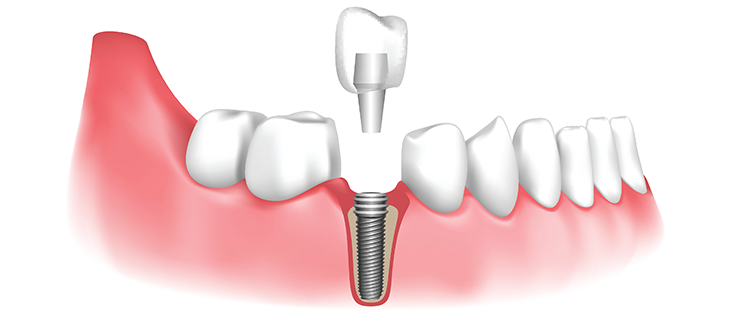A Comprehensive Guide to Dental Implants in the UK: Procedure, Cost, and Benefits

In the realm of modern dentistry, dental implants stand as a revolutionary solution for individuals grappling with tooth loss, offering a lifelike replacement that not only restores oral functionality but also enhances aesthetics and boosts confidence. With advancements in technology and techniques, dental implants have become a standard of care for many patients seeking a permanent and reliable solution to missing teeth. In the United Kingdom, the popularity of dental implants has surged in recent years, driven by their effectiveness and long-term benefits. This article serves as a comprehensive guide to dental implants in the UK, covering everything from the procedure and cost to the advantages they offer.
Understanding Dental Implants:
Dental implants are prosthetic tooth roots made of biocompatible materials such as titanium. They are surgically placed into the jawbone beneath the gums to serve as a stable foundation for replacement teeth, such as crowns, bridges, or dentures. Unlike traditional dentures or bridges, which sit on the gum line or rely on adjacent teeth for support, implants integrate with the jawbone through a process called osseointegration, providing unparalleled stability and functionality.
The Dental Implant Procedure:
The journey towards getting dental implants typically involves several steps:
Initial Consultation: During the initial consultation, the dentist evaluates the patient’s oral health, discusses treatment goals, and determines whether they are a suitable candidate for dental implants.
Treatment Planning: Using advanced imaging techniques such as X-rays and CT scans, the dentist creates a customized treatment plan tailored to the patient’s specific needs. This plan outlines the number of implants required, the optimal positioning, and the type of restoration to be placed atop the implants.
Implant Placement: The surgical phase involves the placement of dental implants into the jawbone. This procedure is performed under local anesthesia to ensure patient comfort. Following implant placement, a healing period of several months is necessary to allow for osseointegration, during which the implants fuse with the surrounding bone tissue.
Abutment Placement: Once osseointegration is complete, abutments—small connectors—are attached to the implants. These abutments protrude above the gum line and serve as attachment points for the final restorations.
Restoration Placement: The final step involves attaching the prosthetic teeth (crowns, bridges, or dentures) to the abutments. These restorations are meticulously crafted to blend seamlessly with the patient’s natural teeth in terms of color, shape, and function.
Benefits of Dental Implants:
Improved Oral Functionality: Dental implants restore the ability to bite, chew, and speak with confidence, allowing patients to enjoy a varied diet and improved digestion.
Enhanced Aesthetics: Implants provide a natural-looking solution to tooth loss, preserving facial structure and preventing the sunken appearance often associated with missing teeth.
Longevity: With proper care and maintenance, dental implants can last a lifetime, making them a cost-effective investment in oral health.
Preservation of Jawbone: Unlike traditional tooth replacement options, dental implants stimulate the jawbone, preventing bone loss and preserving oral health.
Convenience: Dental implants eliminate the need for adhesives or special cleaning procedures associated with traditional dentures, offering a hassle-free solution to tooth loss.
Cost of Dental Implants in the UK:
The cost of dental implants in the UK varies depending on various factors, including the number of implants required, the complexity of the case, the location of the dental practice, and the type of restoration chosen. On average, a single dental implant in the UK can cost anywhere from £1,000 to £2,000, while full-mouth restoration with implants can range from £20,000 to £30,000 or more. It’s essential for patients to consult with their dentist and obtain a detailed treatment plan and cost estimate before proceeding with treatment.
Conclusion:
Dental implants represent a transformative solution for individuals dealing with tooth loss, offering a host of benefits ranging from improved oral function to enhanced aesthetics and long-term durability. In the UK, dental implants have become increasingly popular, driven by advancements in technology and a growing awareness of their efficacy. While the cost of dental implants may seem daunting, many patients find that the long-term benefits far outweigh the initial investment. By consulting with a qualified dental professional and exploring available treatment options, individuals can reclaim their smiles and enjoy a renewed sense of confidence and well-being with dental implants.



